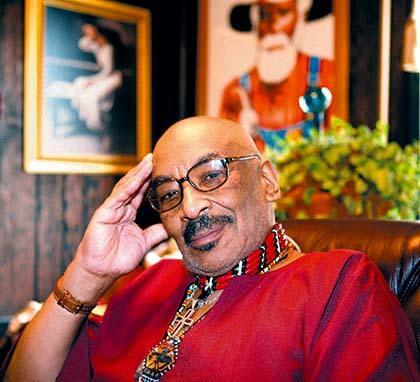By Rich Bockmann
Longtime Bayside resident and activist Mandingo Tshaka will be recognized by the University of the State of New York’s Board of Regents for his contributions to the education of African and African diaspora history and culture.
Tshaka, who celebrates his 80th birthday this week, has been named the first recipient of the Sanford and Hines Families Award for Study and Research in the African Experience in New York State, the Americas and the Diaspora.
Long a fixture of civic life in northeast Queens and well-known to members of the community, Tshaka said that if he remains in good health he plans to travel by train to Albany in late June to accept his award. A statement released by the Board of Regents cited his works with the Olde Towne of Flushing Burial Ground and his efforts to have Congress recognize the contributions of African slaves in the construction of the U.S. Capitol as merit for recognition.
“I am shocked … the things that I’ve achieved. It was obvious that I was chosen to do these things by a higher authority,” Tshaka said.
Tshaka was born in Bayside, but he said it was not until he moved away — first to Flushing and then to Harlem — that he could see the world of his neighborhood with fresh eyes.
“It’s like a picture. You have to look at pictures of your past to really see yourself. If I stayed in my neighborhood all my life, I couldn’t see the whole picture,” Tshaka said.
He said that when he returned and moved into his grandmother’s home in 1973, he got an eye-opening experience while fighting zoning battles with city agencies and the businesses he felt were allowed to encroach on minority, residential neighborhoods.
“I became a force to be reckoned with,” he said as he recounted a story of chasing drug dealers down the street with a machete in the 1980s.
Tshaka said he constantly found seeds planted around him, stories that needed uncovering or pieces of the puzzle that were always put in front of him, and all he had to do was sow those seeds and let them develop.
He is still active in working with the city to recognize the former Martins Field as a burial ground. While watching former President Ronald Reagan being laid to rest, Tshaka read a book entitled “The Debt: What America Owes to Blacks” and learned about the slave contributions to the construction of the Capitol building. Emancipation Hall was opened at the Capitol Visitor Center in 2008 and lacked any recognition of the use of African slave labor in the construction of the Capitol building. Tshaka was instrumental in having plaques recognizing their efforts placed at the site.
“His work is very significant because the burial ground is there and children can go and see it. And the Capitol is there for the world to see,” said Adelaide Hines-Sanford, vice chancellor of the board.
Reach reporter Rich Bockmann by e-mail at rbockmann@cnglocal.com or by phone at 718-260-4574.
Editor's note: Corrected age of Mandingo.


































